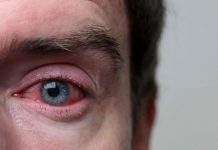Your sympathetic nervous system, or your “fight or flight” response, becomes more active when you experience increased worry. Your heartbeat quickens. Your body tenses up. You begin to breathe more quickly. These are symptoms that anxiety may produce throughout the day or very briefly. These are some of the symptoms that worry might bring on at any time. But occasionally, without warning, the body is abruptly overrun with the stress hormone norepinephrine, which makes these symptoms worse.
An episode of panic is what this is. You are unable to breathe. You find it difficult to breathe deeply. You may feel as though there is a heavy weight on your chest, have chest discomfort, and that your heart is thumping out of your chest. Feeling dizzy, sweating, nausea and trembling are a few other symptoms of panic attacks. If anxiety or panic has been diagnosed, see a clinical psychologist, Dr R.K.Suri, the best clinical psychologist in Dwarka, South-West Delhi, who can help you understand and treat your condition with suitable psychotherapeutic interventions.

Other Bodily Sensations
An incident of fear is often characterised by an abrupt surge of unpleasant bodily sensations and feelings of an imminent disaster (making a scene, heart attack, not being able to breathe). The initial panic attack may occur in a specific circumstance, but subsequent attacks might happen at any time or location. During a panic attack, your body’s stress mechanisms are engaged. These are additionally referred to as your “fight or flight” reactions.
One or more unpleasant physical symptoms, such as an elevated heart rate, light-headedness or dizziness, shortness of breath, an inability to focus, and disorientation, will be present in a severe form. One of these stress reactions is muscular contraction. Your body does this because the stress makes you more robust to harm. Both during and after panic episodes, this tightness in the muscles of your chest wall and the surrounding areas can result in chest discomfort.
Is Anxiety, the Cause of your Breathlessness?
When a person has anxiety, it can be challenging to determine whether the symptoms are brought on by the anxiety or another medical condition. Especially when the symptoms are strong, this might be difficult. One sign of anxiety is shortness of breath, however, not everyone who has anxiety has trouble breathing. Numerous physiological and psychological symptoms can be brought on by anxiety.
- Higher heart rate
- Dizziness
- Sweating/chills
- Nausea
- Diarrhoea
- Bloating
- Sleep disturbances
- Trembling
- Tense muscles
- Rapid breathing
- A feeling of suffocation and chest pain
- Dread of letting go of power
- Agitation is the state of being nervous or irritated by unsettling ideas, perceptions, or recollections.
- Lack of focus and confusion
- Bad memory
- Trouble speaking
Non-MedicalWays to get Relief from Breathlessness
- Concentrate on maintaining control over your breathing by taking three calm, deep breaths through your nose, holding them for two seconds, and then exhaling them slowly for three seconds. To aid with concentration, you might wish to close your eyes. You may stop the panic cycle, stop your hyperventilation, and lessen your chest pain by paying close attention to your body and your breathing.
- Despite the fact that panic episodes might be tremendously terrifying, remind yourself that they will pass. While suffering a panic attack, try repeating a positive statement like “I know this is a panic attack and I know it will pass.” Some people may feel anxious chest discomfort all day on occasion. This might act as a helpful reminder that the moment will pass away just as quickly as it did. Understanding that a panic attack is temporary might assist reduce the anxiety brought on by its symptoms, allowing the episode to pass.
- Your breathing might become more relaxed if a friend or family member reassures you. It is immensely helpful to hear phrases like “you are alright,” “you are not having a heart attack,” and “you are not going to die.” It is crucial that the individual assisting you to maintain their composure and convey these instructions in a soothing, unhurried manner.
- You must use less oxygen in order to produce more carbon dioxide. You can either breathe through your pursed lips (like you’re extinguishing a candle) or by covering your mouth and one nostril while inhaling through the other.
- Realign yourself. When you start to feel the effects of a panic attack wane, start to pay attention to the environment around you. Consider everything you can touch, taste, hear, and see. You could also wish to focus on a specific object and give close consideration to its size, colour, and shape.
- Learn breathing techniques that will calm you and encourage you to breathe from your belly and diaphragm rather than your chest wall. Regularly engage in relaxation exercises like progressive muscle relaxation or meditation.
- Regular physical exercise or go for a walk.
Consult with Dr R.K.Suri, the best clinical psychologist in Dwarka, South-West Delhi, who can explain the panic disorder to you and teach you coping mechanisms. One of the most successful first-line treatments for panic attacks and panic disorder is psychotherapy, generally known as talk therapy.
You can learn how to deal with panic episodes and panic disorder through psychotherapy. You may learn this lesson for yourself by engaging in cognitive behavioural therapy, a type of psychotherapy. Panic attacks are not harmful. Your therapist will work with you to safely and repeatedly recreate the signs of a panic attack and work to minimise your psychological symptoms.
Attacks start to abate as the bodily symptoms of panic stop feeling dangerous. You may be able to conquer circumstances that you have avoided due to your fear of them with successful therapy.
















